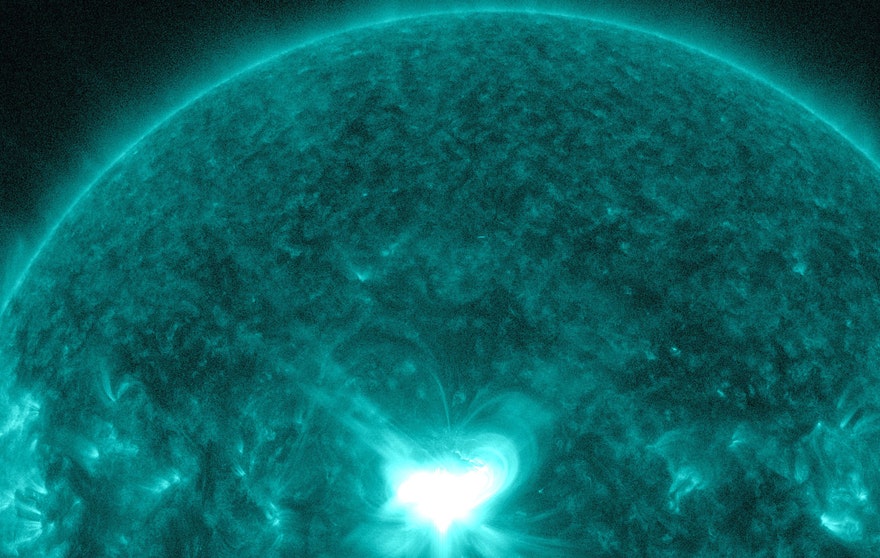In the recently released “Maze Runner: Scorch Trials” trailer, kids have to survive in a world destroyed by solar flares.
Some researchers are warning not all states in the U.S. will be ready
for the threat of solar storms. Will your state survive a mega-blast
from the sun?
According to research
from The Pew Charitable Trusts, some states are taking steps to protect
the power grid from solar flare damage, while others are not.
A major solar storm with an intense radiation burst from the sun can
produce an electromagnetic pulse (EMP). An EMP is a high-intensity
burst of electromagnetic energy caused by the rapid acceleration of
charged particles.
On the minor end of the spectrum, an EMP can create temporary radio
blackouts and disrupt GPS navigation. On the larger scale, an EMP attack
could devastate the US power grid and technological infrastructure
sending the US back to the 1800s.
A near miss
Scientists recently revealed in Nature Communications that the Earth had a very near miss last year.
In early 2014, there was a giant solar eruption that scientists expected would strike Earth.
In terms of “space weather,” coronal mass ejections are like
hurricanes. When these ejections happen, a billion tons of ultra-hot
matter lashes out from the sun.
This one from 2014 was traveling at a speed of more than 5.3 million
mph toward Earth. What would have happened if it made contact? Well, if
it had struck, then it would have triggered a very strong geomagnetic
storm.
Scientists believe the sun's magnetic field unexpectedly deflected it away from Earth.
The consequences could have been serious.
In 1989, in the span of a few seconds, a coronal mass ejection
blacked out the entire Canadian province of Quebec. The damage traveled
to the United States as well as to New Jersey. It very nearly succeeded
in shutting down the U.S. power grids from the mid-Atlantic through the
Pacific Northwest.
The threat
Space weather is very unpredictable. While scientists may be able to
identify when a coronal mass ejection will strike Earth, they cannot
predict how powerful an impact it will have until it strikes.
The concern is that an EMP could disrupt the nation’s electrical grid.
If a solar flare collapsed the national electrical grid, it would create many problems for security. Electricity
and telecommunications would be unavailable for weeks and months. Other
essential aspects of life could be affected as well from emergency
services and sanitation to access to food and water.
The National Governors Association research
on the threat identified that seventy percent of the country’s
transmission lines and transformers are at least twenty-five years old.
The research also revealed that 60 percent of the nation’s circuit
breakers are at least thirty years old.
The researchers note that most electrical infrastructure was designed
in the 1950s, making the larger system particularly vulnerable to solar
flare disruption.
The Pew Charitable Trusts researchers reviewed the steps taken by the
government to prepare for a solar flare and EMP event. They concluded
that Congress has commissioned reports and held hearings about the
dangers of solar storm events, but little action has been taken.
As a result, states have been implementing their own approaches to
the threat. Some states have been introducing legislation to protect
their critical infrastructure.
Legislators like Sen. Bryce Reeves, a freshman state Senator in
Virginia, have been sponsoring measures to protect their home states
against such threats. Some states like Louisiana and Kentucky are
taking steps to study the threat while others like Arizona have been
taking action with initiatives to prepare the public.
According to the Pew research, EMP or solar storm-related legislation
has been raised in eleven states, but only enacted in five since 2013.
SOURCE

No comments:
Post a Comment